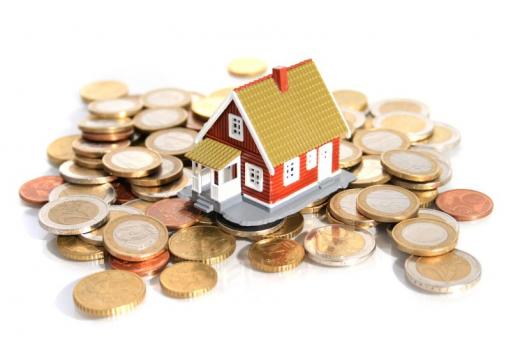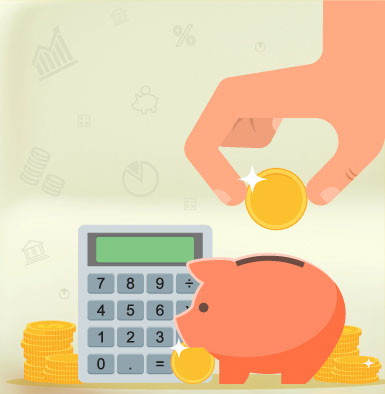How Much Down Payment Do You Need To Buy A Home In Ghana
How Much Down Payment Do You Need To Buy A Home In Ghana

Downpayment is an important factor when you plan to buy a house in Ghana and pay monthly. To ensure you have enough money saved up, you'll need to have a downpayment of at least 10%. When shopping for a home, always make sure to ask lenders about the down payment requirement.
Some banks in Ghana require a 20% down payment, while others may only require a 10% down. Some sellers may also require a downpayment as part of their selling criteria. To buy a house in Ghana and pay monthly you'll have to save towards a down payment.
You'll hear a lot of terminologies used throughout the home-buying process that you might not be acquainted with, such as the "loan-to-value" ratio, "debt-service-coverage" ratio, and "debt-to-income ratio."
What is a Down Payment?
Down payment is a term used in real estate to describe the amount of money you need to put down before you can purchase a home. A down payment can be a significant portion of the purchase price of a home and can vary depending on the property and the lender.
A buyer's monetary investment in a home being acquired through a finance agreement is known as a down payment. There are several effects of the down payment requirements. First off, making a down payment demonstrates to a lender that you are a serious borrower who can handle your finances.
The more money you have available for a down payment, the less risky you will default on your mortgage payments. The fact that a down payment minimizes the amount you will owe, the amount of interest you will pay, and perhaps even the length of time you will be making payments is more significant for you, the buyer.
How much money is enough for a down payment in Ghana?
Almost all mortgage banks in Ghana have different down payment plans. However, four considerations should guide your choice of how much down payment to make on a house in Ghana:
1. How much money must you put down to qualify for a loan or purchase a home? This is based on the mortgages that you decide to finance your home purchase.
2. How much of a monthly mortgage payment, including taxes and insurance, can you comfortably afford? Put down enough of a down payment so the payments don't go above that limit you can comfortably afford.
3. How much do you have to put down? If you only have the minimum needed - then that answers the question.
4. If you have significantly more money than is required (you need 20% down but have 25% available), you should consider what you would do with the excess funds if you merely made the minimum down.
On the other hand, if you are not comfortable investing and would let the money sit in the bank at 1% interest, then put down the larger deposit and save on the mortgage interest.
Mortgage banks with down payments in Ghana
These mortgage interest rates are mortgage loans in local currency and are usually considered as normal mortgages in Ghana. Usually, mortgages in US dollars are generally between 11% & 12% for all mortgage lenders in the country.
For especially paired mortgages, lenders have distinct terms with regard to the down payment. For instance, if the government chooses to work with some banks to provide mortgages for the Ghana Police Service, the rates will undoubtedly be lower and they may be able to obtain mortgages for as low as 100% of the purchase price.
With such mortgages, they are considered government insured-mortgages. Also, other Insurance companies can also do the same for their members with certain terms of engagement. The percentage of down payments in the table indicates the minimum banks can offer in Ghana.
Source: From Mortgage banks in Ghana
Buying a house in Ghana without a down payment
Can you buy a house in Ghana without putting money down? The answer is absolutely yes, however, it's important to understand that the down payment represents just a portion of the total cost of the house. In rare circumstances, the down payment itself may be matched or exceeded by the closing charges. Even if this may seem depressing, there are options.
As a buyer, you can also request payment from the seller or negotiate a rebate from the lender in exchange for a slightly higher interest rate. Currently, you can buy a home with no money down if you qualify for a government-sponsored program known as the National Housing Mortgage Fund (NHMF).
Although the National Housing Mortgage Fund (NHMF) schemes require no down payment, you must meet the requirements established by the Ministry of Finance, Ministry of Works and Housing, Tema Development Company, and the mortgage partners.
The pros and cons of a bigger down payment
Let's weigh the advantages and disadvantages to discover how a sizable down payment can reduce other obligations and costs.
Pros
1. Lower interest rates: The more money you put down, the less risky you are to lenders. You might qualify for reduced interest rates if you can put down at least 20% at closing on your mortgage. You may save thousands of dollars over the course of your loan with an interest rate that is just one or two points lower.
2. Lower monthly payments: You'll have the chance to borrow less money for your mortgage loan in proportion to the size of your down payment. Your mortgage payments will be smaller per month the less money you borrow. This makes setting up a budget for repairs or any other monthly expenses simpler.
3. You win lenders' trust: The saying that lenders will follow you for loans when you have a sufficient credit history applies exactly in the case of a mortgage. Lenders in Ghana will be more than confident that you'll easily complete your repayments if you have, say, a 20% down payment.
Cons
1. Less liquid assets: It's difficult to get your money back once you've put it down for a mortgage. It can be a good idea to put down less money and increase your emergency fund if you believe there's a possibility you'll need the funds for something crucial in the future.
2. Long period of saving: Saving money for a down payment might take many people months, years, or even decades. When you take into account how much you'd be paying in rent each month, waiting until you have a 20% down payment can result in a significant loss of opportunity. Rent may be more expensive in the long term than purchasing a home now while saving for a 20% down payment.
The Bottom Line
When it comes to a larger or lower down payment, there is no one absolute solution. But a realistic assessment of how your down payment will impact your monthly payments is an excellent place to start. Use our mortgage calculator to estimate how a particular down payment will impact your monthly mortgage payment. You can experiment with different down payment amounts to find what works best for you after entering some basic information to get an estimated monthly payment.

 French
French




